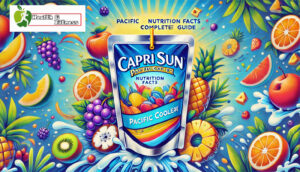A healthy diet should include cereals, potatoes, vegetables, fruits, livestock, poultry, fish, eggs, milk and legumes every day.
You should consume 200-300g of cereals and tubers every day, such as rice, wheat, corn, etc. Whole grains should account for 50-150g, such as wheat, corn, oats, millet, etc. And consume 50-100g of tubers and beans in moderation.
Specifically, the density of cooked rice cooked with ordinary rice and the usual rice-water ratio is about 0.8g/ml, 100ml of cooked rice is about 80g, and the weight ratio of raw rice to cooked rice is about 1:2.5. This means that 100ml of cooked rice contains about 32g of raw rice. The capacity of a typical rice bowl (4.5 inches) is about 250ml. In other words, a bowl of rice contains about 200g of cooked rice and about 80g of raw rice. Two bowls of rice plus at least 50g of whole grains such as corn and oats can almost meet the standard intake of cereals for a day.
In addition to the intake of cereals and tubers, the intake of vegetables and fruits is also very important.
The recommended daily vegetable intake is no less than 300g (about a bowl of half-cooked rice excluding the weight of the bowl), of which dark vegetables should account for 50% (dark vegetables refer to dark green, red, orange and purple vegetables).
The recommended daily fruit intake is between 200g and 350g (a medium-sized apple contains approximately 150g). Note that juice cannot replace fruit.
Let’s talk about dairy products, livestock, poultry, fish, and eggs for healthy diet

Numerous studies have confirmed that fish, livestock meat, poultry and eggs are closely related to human health. Appropriate intake helps improve health, but improper intake ratios increase the risk of cardiovascular disease, obesity and certain tumors. However, most people currently consume livestock meat, poultry meat, fish and eggs in an inappropriate ratio, with livestock meat (such as pork) being too high and fish and poultry (such as chicken and duck) being too low.
Eating more fish can reduce the risk of all-cause mortality, stroke, dementia and cognitive impairment in adults.
The intake of fish, poultry, eggs and lean meat needs to meet the appropriate proportion, and the weekly intake should also be appropriate and reasonable. The average daily intake of fish, poultry, eggs and lean meat should be 120-200g. It is best to eat fish twice a week or 300-500g, eggs 300-350g, and livestock and poultry meat 300-500g.
Specifically, it is recommended to consume at least 300g of fish per week , but the daily intake of meat should not be too much, and it is recommended to be between 120 and 200g.
The daily intake of eggs is approximately between 43g and 50g. If you eat eggs, one egg is about 50g, which is enough to meet the daily intake of eggs.
The recommended daily intake of dairy products is at least 300 ml of liquid milk (a box of pure milk is about 250 ml).
In addition, you should pay attention to reducing the consumption of fatty meat, smoked meat, pickled meat, deep-processed meat and other meat products.
2. Give your body enough exercise
There is no need to say much about the importance of exercise to the body.
Proper exercise can not only promote blood circulation in the human body, so that all parts of the body can get adequate material replenishment, but also improve the body’s metabolism and enable the body to carry out proper material renewal.
The benefits are numerous in all aspects.
How can we get enough exercise for our body?
It is recommended to refer to the “Dietary Guidelines for Chinese Residents” and reach the equivalent amount of daily activity of “brisk walking 6,000 steps”.
Specifically, it is recommended to have 25 minutes of jogging time or 30 minutes of exercise time such as table tennis, aerobics, basketball, badminton, etc. every day.
In addition to “brisk walking 6,000 steps” every day, you also need to engage in moderate-intensity physical activity for 5 days a week (that is, activities that make you feel physically tired and a little strenuous).
The cumulative exercise time for five days should not be less than 150 minutes, that is, at least 30 minutes of moderate-intensity physical activity each time. Specifically, it is recommended to perform resistance exercises such as sit-ups, squats, push-ups, etc. for at least 30 minutes 5 days a week.
In addition to exercise, you should also drink enough water every day. Drink a small amount of water multiple times, and it is recommended to drink no less than 1700ml of water per day.
Excerpt tips:
(1) Do aerobic exercise every day (jogging for 25 minutes, etc.);
(2) Resistance exercise is essential (at least 30 minutes of group resistance exercise);
(3) Do flexibility exercises at any time (avoid sitting for long periods of time and stretch more).
3. Limit your intake of added sugar
What is added sugar: Added sugar refers to sugars that are artificially added to food, and it is added to almost all common processed foods.
The main source of energy for the human body is through the intake of foods containing carbohydrates, proteins, and fats. Added sugars are mostly monosaccharides and disaccharides in carbohydrates. Excessive intake of added sugars will increase the burden of blood sugar regulation in the human body and affect the intake of other energy-producing nutrients.
Nutrition experts in my country believe that carbohydrates should account for 60-65% of total calories. Therefore, in addition to the daily carbohydrates contained in grains, fruits, vegetables, eggs, etc., we should pay attention to controlling the intake of carbohydrates from other sources (such as added sugar).
Common added sugars include sucrose (such as white sugar, brown sugar, molasses, etc.), fructose (such as concentrated fruit juice, etc.), glucose, high fructose corn syrup, etc.
Dietary Guidelines
it is recommended that the daily intake of added sugar should not exceed 50g, and the ideal control amount is less than 25g.
The normal sugar content of a cup of milk tea (70% sugar) is at least 15%. A medium cup is about 400ml. In other words, a normal medium cup of milk tea with 70% sugar contains nearly 60g of added sugar.
A bottle of cola (500ml), you can check the ingredient list to know that every 100ml of cola contains 10.6g of sugar. A bottle of 500ml cola has nearly 53g of added sugar.
Most beverages on the market have added sugar, so if you want to control your intake of added sugar, you must consider stopping drinking sugary drinks.
Not only beverages, but also candies and desserts have very high added sugar content. When purchasing snack products, you should also pay attention to the added sugar content per gram shown in the ingredient list.
What effects will it have on the body if we consume too much added sugar every day?
(1) Added sugars usually only provide energy, with little or no other essential nutrients and dietary fiber. Therefore, apart from providing quick energy, they have almost no benefits to health. Excessive intake of added sugars may induce obesity, increased BMI and other problems.
(2) Added sugars are monosaccharides or disaccharides that are easily absorbed by the body. Ingesting large amounts of added sugars in a short period of time can cause blood sugar to rise rapidly. Coupled with the irregular intake time, it will affect the body’s blood sugar regulation and increase the burden on the pancreas and kidneys. Long-term excessive intake of added sugars has the potential risk of inducing diabetes.
(3) Speaking of beverages containing added sugar, according to multiple studies, excessive intake of sugary drinks (SSBs) increases the risk of dental caries and some chronic non-communicable diseases (diabetes, cardiovascular disease, cancer, gout).
(4) Finally, humans are naturally addicted to sugar. Eating sugar prompts the brain to secrete dopamine, which produces a happy mood. Long-term excessive intake of added sugar may cause ” sugar addiction ” and thus develop unhealthy eating habits.
Summary
At least one box of pure milk, one egg, one apple, two bowls of rice, more vegetables, more fish, some beans and nuts. Jog for 25 minutes every day, do push-ups, sit-ups and squats when you have time. Drink at least three bottles of water every day, don’t drink beverages, and eat less fried, grilled, pickled, and highly processed foods.



20 Comments
Pingback: Hypokalemia ICD 10: Understanding the Code and Condition
kqs1zt
Pingback: Why Ozempic Dupe Zyn Is a Game-Changer in Diabetes Care
This site is a great resource for anyone seeking for helpful information on a variety of topics. Thanks for all that you do.
Your blog is a treasure trove of precious information; it’s truly worth exploring.
Pingback: Weight Loss: Breaking Down the Myths and Making It Simpler
Pingback: m54.16 diagnosis code: Causes, Symptoms, Effective Treatments
Pingback: Face Fresh Cleansing Cream: Ultimate Solution for Glowing,Skin
Pingback: Gout ICD 10: Comprehensive Guide to Diagnosis, Medical Coding,
Pingback: Effective Scalp Treatment Near Me: Options, Benefits & Expert Tips
Pingback: Constipation ICD 10: A Complete Guide to Accurate Medical Coding
Pingback: Grow Taller? Discover 3 Key Growth Stages to Reach 180 cm!
Pingback: Scaphoid Abdomen: Causes, Symptoms, and Treatment Explained
Pingback: Does Viagra Make You Hornier? Libido Facts & Effects
Thanks for sharing. I read many of your blog posts, cool, your blog is very good.
Pingback: Can Hepatitis B Carriers Have Children? Risks, Prevention
Can you be more specific about the content of your article? After reading it, I still have some doubts. Hope you can help me.
Pingback: Anorexia: Symptoms, Causes & 7 Warning Signs
Pingback: Bottle feeding: when and how is it best to wean? -
Pingback: What Medications Are Harmful to the Stomach? Must-Read it